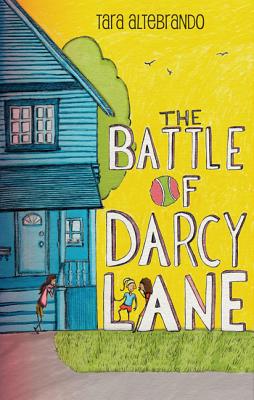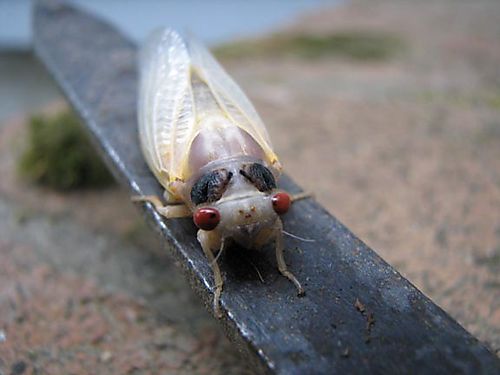Tara Altebrando was kind enough to follow-up on an earlier ReaderKidZ post about her newest book, The Battle of Darcy Lane, by joining us today to answer a few questions.
The Battle of Darcy Lane is your Middle Grade debut, but you are well versed in writing YA fiction. Did you face any challenges while writing in a younger voice for a younger audience?
It took a bit more work for me to get into the mindset of a twelve-year-old since my memory of twelve is not as clear as my memory of sixteen or seventeen, and I don’t have any girls that age that I am very close with. I’ve been keeping diaries since I was about ten, though, so I had an old Snoopy diary to flip through. But because I didn’t write as often as I would have liked—I wrote “Sorry!” on an awful lot of pages—I talked to friends about their twelve-year-old daughters and, when I finished a draft, had two reads from girls who were in the right age group to see if the book was resonating. Luckily, it seemed to but I definitely made some revisions based on their feedback. Also, my YA novels typically have a love story, so it was a fun new challenge write about boy-girl friendship and unformed sort of dreamy romantic feelings.
 Taylor is a fascinatingly complicated character. The way she acts, in turns, cruel and kind to Julia keeps readers guessing whether the two will end up friends or enemies. Did Taylor start out that way, or did she change throughout your writing process?
Taylor is a fascinatingly complicated character. The way she acts, in turns, cruel and kind to Julia keeps readers guessing whether the two will end up friends or enemies. Did Taylor start out that way, or did she change throughout your writing process?
Taylor definitely became more nuanced during the revision process, based on a note from a friend who read an early draft. I had to work hard to include clues about Taylor and Alyssa that the reader would pick up on—even when Julia didn’t—so that they weren’t just mindless mean girls. Taylor’s the rope in this tug-of-war between Julia and Alyssa. She feels powerless and doesn’t really know who she wants to win, which sort of justifies her hot and cold behavior. In her own way, she’s struggling with all the same issues as Julia, trying to figure out where she belongs.
One interesting aspect of Julia’s summer is the return of the seventeen-year cicadas. What made you choose this unusual event to coincide with Julia’s especially difficult summer?
I have a handful of vivid memories from when the seventeen-year-cicadas emerged in my neighborhood when I was about twelve, so I decided to add that in as a fun detail, just sort of randomly. But then in the writing it became much deeper, of course; the cicadas suddenly contributed a great deal to the atmosphere of the book and the emergence of the bugs became a sort of metaphor for Julia’s emergence out of childhood and into adolescence.
Julia’s mother is a major part of her daughter’s life. She’s definitely aware of Julia’s friendship woes, and sometimes takes action—like enrolling her in camp—to get her away from the Taylor-Alyssa duo. What was your inspiration for Julia’s mom, and for their close relationship?
Julia’s mother is very much based on my own, because as much as my mother was my biggest supporter, she was also not afraid to criticize my behavior or point out that I had a role in contributing to whatever drama I was living. It was really important to me that Julia’s mom not come off as perfect, though, so there are some glimpses of her own flaws with her friends and also, she gets swept up in the Russia drama almost against her own will. She doesn’t like the girls that don’t like her daughter, but she’s trying to find a way to keep her own emotions in check…until, of course, she can’t. The book is dedicated to my daughters, who are much younger than Julia, but if I have a relationship with them when they are older like the one Julia has with her mom, I feel like I will have done something right.
 One of the most truthful aspects of The Battle of Darcy Lane is your portrayal of how friends can hurt each other. Alyssa and Taylor aren’t stereotypes of “bullies,” but they find a million little ways to make Julia feel beneath them. What advice do you have for readers who are dealing with a similar kind of situation?
One of the most truthful aspects of The Battle of Darcy Lane is your portrayal of how friends can hurt each other. Alyssa and Taylor aren’t stereotypes of “bullies,” but they find a million little ways to make Julia feel beneath them. What advice do you have for readers who are dealing with a similar kind of situation?
I would suggest looking at the ways in which you might be contributing to the situation and examining your thoughts about whoever is putting you down. Do you like them? Are you giving them power? Are you being cruel, in your own way? Can you find a way to just walk away and move on?
Also, it’s absolutely true what Julia’s mom says about “the friend thing”: “It really does get easier, I swear.” It eventually becomes more effortless to find people you genuinely like, and also to just coexist peacefully alongside people you don’t connect with.
Julia’s Russia game against Alyssa makes for a satisfying—and suspenseful—climax to their rivalry. What made you choose that particular ball game as their means for battle?
I spent the summer of my twelfth year playing Russia for hours on end with my own two mean-girl-neighbor-friends. I initially wrote and shopped this book to publishers with the title Russia, and the first version was just thirteen short chapters, each one corresponding to a move of the game. On the path to publication, the book then became much more multi-faceted and the game became less the focal point but I liked the way it helped to highlight the competitive aspects of friendship and also liked the way it allowed me to bring some Cold War ideas and images into the story.
 One common theme of The Battle of Darcy Lane is waiting. Julia has to wait for the cicadas to come, for her new room, and, of course, for her big Russia face-off against Alyssa. Her anticipation and anxiety really capture the feeling of wondering what it will be like to grow up. What were you waiting for when you were twelve? Did you have the same desires as Julia?
One common theme of The Battle of Darcy Lane is waiting. Julia has to wait for the cicadas to come, for her new room, and, of course, for her big Russia face-off against Alyssa. Her anticipation and anxiety really capture the feeling of wondering what it will be like to grow up. What were you waiting for when you were twelve? Did you have the same desires as Julia?
I was waiting to feel like I belonged somewhere. Waiting for a boy that I maybe kind of liked to like me back. Waiting to grow up. Waiting for a kiss. Waiting for more independence/freedom. So yes, very much like Julia.
Julia does not get everything she wants by the story’s end, yet the ending still feels hopeful. What would you like readers to take away from the conclusion?
I want them to get the sense that Julia, who will absolutely face more challenges in these relationships and others, has come out of the summer with a new confidence about the fact that not everyone you meet in life is going to like you—or vice versa—and that’s okay.











Great interview! My daughter had her share of friends who weren’t really friends. And now she ‘s dealing with her own daughter’s mixed-up relationships. This topic will certainly attract a wide audience, and I’m looking forward to reading it.